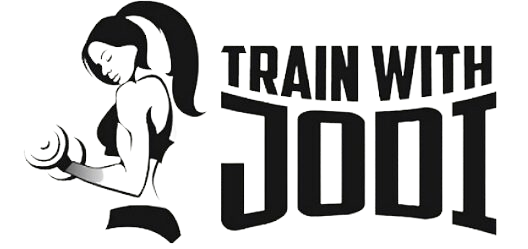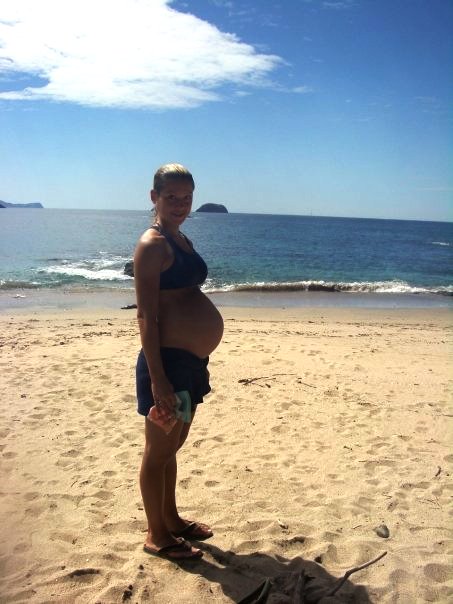I’m Not Fat, I’m Pregnant!
Unfortunately, more and more pregnant women are having to say this since nearly half of women of childbearing age are overweight or obese…thus making it more difficult to spot the baby bump. However, as I have discussed in my prior posts here and here, a great workout program, and a proper nutritious diet devoid of certain aliments before, during, and after these 9 months will support you through the physical challenges of pregnancy and birth, and set your baby up for a lifetime of good health
.
Eating for Two
The Institute of Medicine states a healthy weight gain during pregnancy is about 25 pounds (11.5 kilo). This 25 lbs stems from a combination of excess body fluid, placenta, your growing chest-line engorged with growing milk ducts, a growing fetus, and a little extra (but not too much) body fat for you. Despite, what your grandmother told you about needing to “eat for two” when pregnant, this is HIGHLY untrue! Even though you may sometimes be tempted to eat twice as much, this growing baby only needs a small number of extra calories in order to thrive. In fact, absolutely no extra calories are needed during the first 28 weeks of pregnancy! And then after that ONLY an extra 200 calories per day (the equivalent of eating two apples) are required during the last 12 weeks. (READ THAT AGAIN and look it up if you don’t believe me!) It is just not that much. Here are some 200 calorie images for reference:

Without a doubt, the most important thing during pregnancy is not adequate calories but adequate nutrition.
So What Should You Eat While Pregnant?
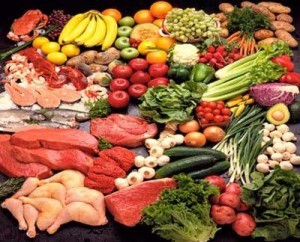
To meet your daily needs for protein, calories, carbohydrates, healthy fats, and key vitamins and minerals during pregnancy, eat a variety of foods.
Minimize sugary beverages, fried foods, and processed fat and sugar.
Pregnancy Supplements
There is no magic bullet for a poor diet. Whatever supplement you take, make sure to take it as an addition to a nutrient-dense diet, not a replacement for one. Thus, always make sure your foundation is solid before you seek other options, including a prenatal vitamin. Since our farming soil is not near as rich as it once used to be (stripped of valuable little critters and vitamins and nutrients), I do think it may be wise to supplement for micronutrients to ensure you are setting your child up for nothing but the best.
Fats
Essential, healthy fats are key during pregnancy. Always eat fattier cuts of quality meats and enjoy good, healthy fats (coconut oil, olive oil, butter, avocado) to increase absorption of essential fat-soluble vitamins like D, A, and K2, iron, and B vitamins.
Vitamin A
* Be careful with Vitamin A, as in excess it is linked to birth defects. However, if you are avoiding the standard American junk diet fortified with Vit. A, you should not be at risk, for whole foods pose no danger.
Vitamin D
Vitamin D is another crucial fat-soluble vitamin, especially in the third trimester. It helps the baby’s skeletal and immune system develop properly and can even help mom with preeclampsia The best way to ramp up your Vitamin D levels is through the sun, but if you do not have access (due to location or job) then a Vitamin D supplement might be necessary.
Folate and Iron
Eating a wide variety of high-quality animal products like meat and fish will give you plenty of important crucial micronutrients (like folate and iron) that support proper neurological function important for a baby’s developing brain and nervous system. If you don’t get enough iron during pregnancy, you are at risk of developing anemia, which makes it harder for your body to fight off infections during pregnancy, and increases the risk of a premature delivery. Red meat and organ meats are excellent food sources of iron, as is cooking with cast-iron pans, because it transfers iron directly into your food.
Calcium
Calcium is also important because it helps the baby’s skeleton develop normally, and if you don’t get enough calcium in your diet, your fetus will take calcium from your bones, causing a much higher risk of osteoporosis for you later in life. To obtain calcuim in your diet you can eat dark leafy green vegetables like spinach and kale, or eat more bone broth, canned bone-in fish like salmon and sardines. If you tolerate dairy, it also has provides ample calcium as well.
Fish Oil
Wait a minute….preggos are NOT supposed to eat too much fish, right?! WRONG, again. Wild caught seafood contains the essential fatty acids EPA and DHA, as well as a healthy dose of selenium and iodine. Being a total fish lover, I hated when grandma told me not to eat too much of it and by all means to avoid raw fish!! Turns out, just as in eating for two, she was completely wrong. Several studies, like mentioned in this NY Times article, verify that you can actually eat sushi, sashimi, and raw fish during pregnancy and it is quite beneficial! The need to avoid them was based on bad science. The mercury in fish is actually countered by the high levels of selenium as shown in this study and represented here in this article. On the contrary, not eating fish can actually be more harmful for a pregnant mom than avoiding it! Fish provides a whole array of healthy, essential nutrients for mom and baby.
Alcohol and Caffeine
Unfortunately, whether healthy or not, alcohol and caffeine still need to be consumed in moderation because these can actually cross the placenta, so just be responsible and aware. If you enjoy coffee, you can drink two 8 oz cups a day (about 200 milligrams). For me, I am a coffee addict!! Therefore, I switched to a good, quality decaf brand and drank to my hearts content. As for alcohol, well, that is a no-brainer. If you really enjoy the taste (and are not looking for a head-change) then have your sip, but if you are wanting a head change, avoid the alcohol (because your baby will feel it too!).
Below is a visual chart for those of you who need it. Pregnant women should include more fattier cuts of healthy meats in their diets and limit dietary protein to about 20-25% of their total caloric intake. Choose foods that are as close to their natural state as possible. Avoid processed foods (junk foods).
FYI- bland carbohydrates like potatoes and white rice can also be dietary lifesavers for women suffering from morning sickness or food aversions.
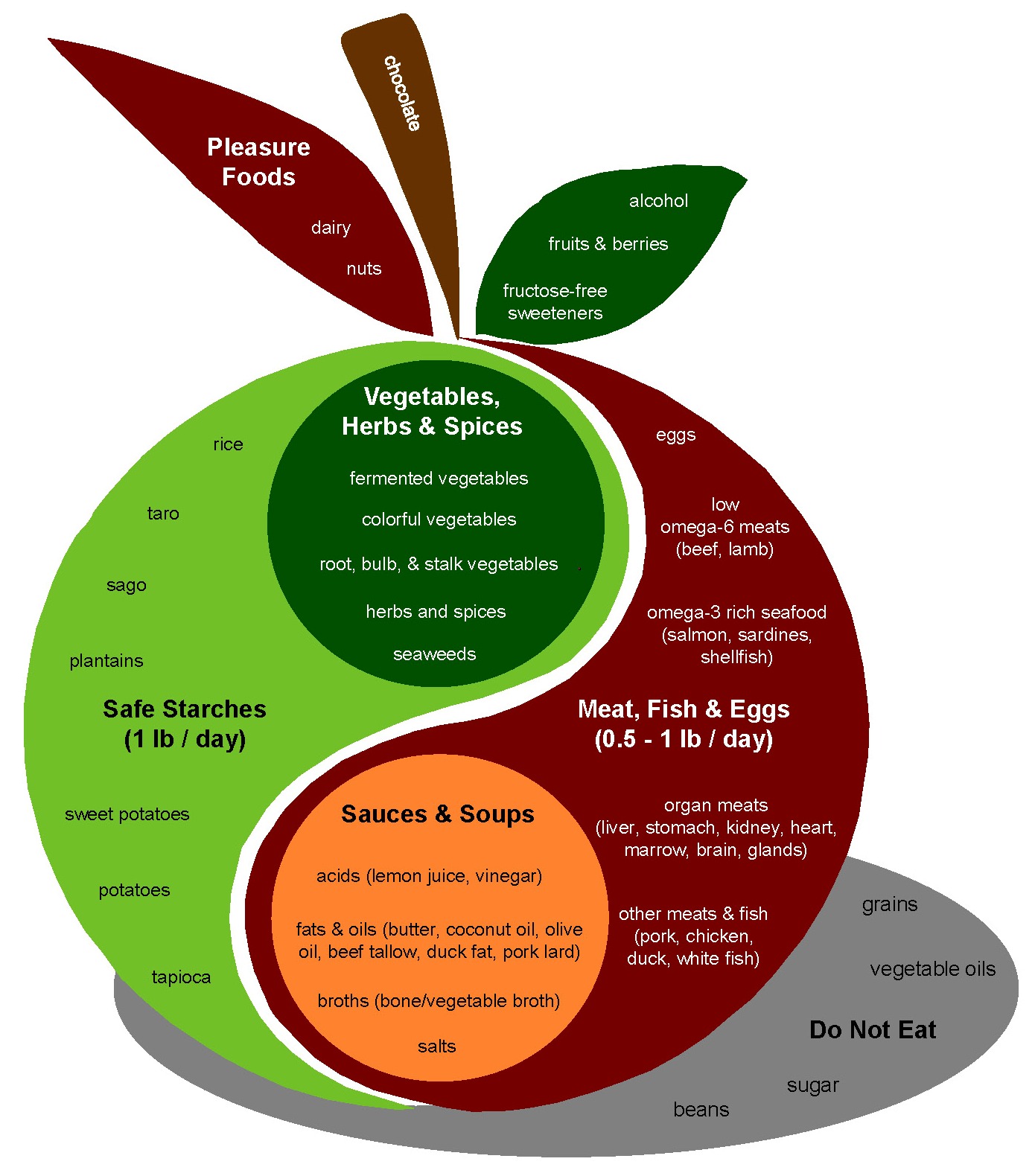

EAT DON’T EAT
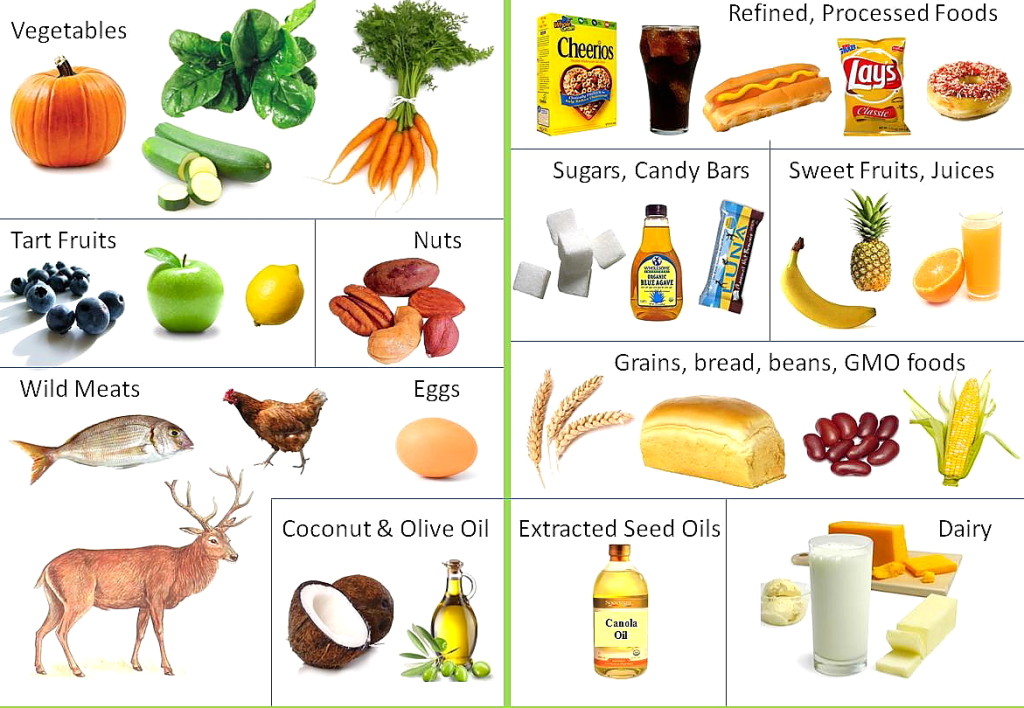
Can’t overcome your cravings for junk food? Discover some healthy and delicious alternatives.
Also, how do you stay fit after delivery? Find out next…..
Up Next:
Staying Fit Through Pregnancy, Part (6): Life After Birth
